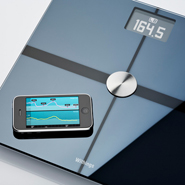By BEN FORER
April 15, 2011
Subjects Who Underwent Gastric Bypass Surgery Saw Significant Memory Improvement
Losing weight may be more than just good for your heart. New research indicates it also can improve your
memory.
According to a study led by John Gunstad, assistant professor of psychology at Kent State University, weight loss may improve concentration and overall cognitive ability.
"We've known for a long time that obesity is a risk factor for things like Alzheimer's disease and stroke, and more recent work really shows that obesity is a link to memory problems and concentration problems before that even begins," said Gunstad. "If excess weight causes these problems, can losing weight help reverse them? That's what we wanted to research."
Gunstad tested the memory and attention of 150 overweight people. Then, some of the participants underwent gastric bypass surgery while others did not.
"What we found is that by individuals who went through the weight loss surgery showed improvements in memory about 12 weeks after surgery," said Gunstad. "They were able to show improvements moving from the kind of mildly impaired range into the normal range, which clinically is a pretty good, is a pretty meaningful change."
Prior to surgery, 23.9 percent of all the participants showed impaired learning and 22.9 percent had poor recognition memory.
Twelve weeks after surgery, the average performance for those that went under the knife was within average range or above average on all cognitive tests, improvements that were not seen in the group of people that decided to not have gastric bypass surgery.
3 Unanswered Questions
There still are three major questions that need to be answered, Gunstad said:
1. What from obesity is causing the brain damage?
2. What causes the brain to improve after surgery?
3. Can behavioral weight loss produce the same changes in the brain as surgery?
"If we're able to identify what causes these memory problems in the first place and then changes after surgery to make the memory better, that's the key," said Gunstad. "Once we can find that, that might be an answer to what better understands how obesity's linked to Alzheimer's disease, stroke or even just memory decline that happens in older adults."
Weight-Loss Benefits Without Surgery?
Gunstad is cautiously optimistic that if somebody were to lose 20 or 25 pounds, they might see some of the same benefits without the surgery.
"I think one of the important take-home messages for this study," he said, "is really just, kind of, a reminder for individuals that if you take care of your body, you're also taking care of your brain."
Source
Easy Ways To Lose WeightBobkona Sectional

